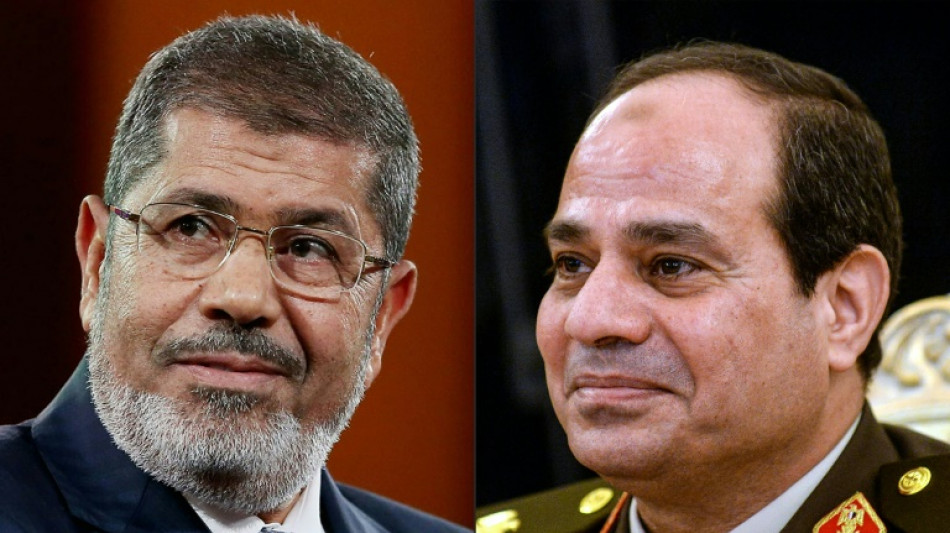
-
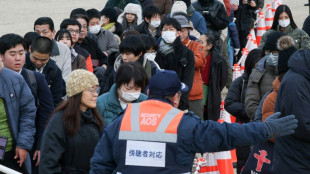 Japan ex-PM Abe's alleged killer faces verdict
Japan ex-PM Abe's alleged killer faces verdict
-
Climate change fuels disasters, but deaths don't add up

-
 Stocks stable after tariff-fuelled selloff but uncertainty boosts gold
Stocks stable after tariff-fuelled selloff but uncertainty boosts gold
-
What growth?: Taiwan's traditional manufacturers miss out on export boom

-
 'Super-happy' Sabalenka shines as Alcaraz gets set at Australian Open
'Super-happy' Sabalenka shines as Alcaraz gets set at Australian Open
-
With monitors and lawsuits, Pakistanis fight for clean air
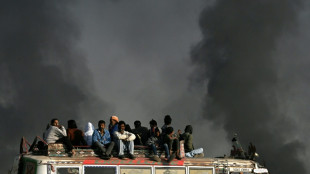
-
 Sabalenka sets up potential Raducanu showdown at Australian Open
Sabalenka sets up potential Raducanu showdown at Australian Open
-
Chile president picks Pinochet lawyers as ministers of human rights, defense
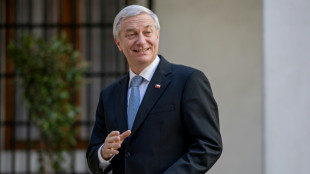
-
 Osaka says 'I'm a little strange' after Melbourne fashion statement
Osaka says 'I'm a little strange' after Melbourne fashion statement
-
UN report declares global state of 'water bankruptcy'
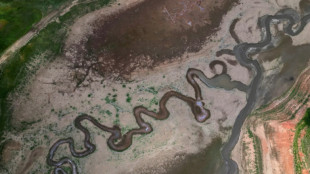
-
 Trump heads for Davos maelstrom over Greenland
Trump heads for Davos maelstrom over Greenland
-
Ukraine's Oliynykova wants Russian, Belarusian players banned from tennis

-
 Kasatkina cannot wait to be back after outpouring of Melbourne support
Kasatkina cannot wait to be back after outpouring of Melbourne support
-
Chile blaze victims plead for help from razed neighborhoods
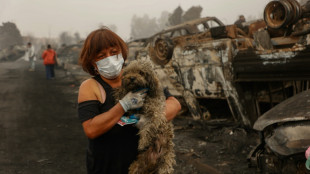
-
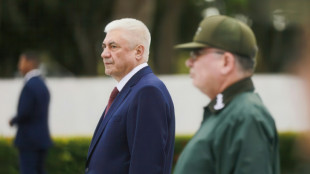 Russian minister visits Cuba as Trump ramps up pressure on Havana
Russian minister visits Cuba as Trump ramps up pressure on Havana
-
World order in 'midst of a rupture': Canada PM Carney tells Davos
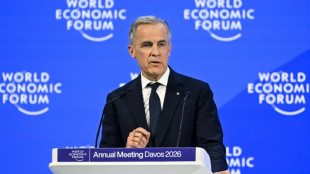
-
 Senegal's 'historic' AFCON champs honoured with parade, presidential praise
Senegal's 'historic' AFCON champs honoured with parade, presidential praise
-
Audi unveil new car for 2026 Formula One season

-
 Man City humiliated, holders PSG stumble, Arsenal remain perfect
Man City humiliated, holders PSG stumble, Arsenal remain perfect
-
Vinicius, Real Madrid need 'love' not whistles: Bellingham

-
 Late Suarez winner stops Champions League holders PSG in Lisbon
Late Suarez winner stops Champions League holders PSG in Lisbon
-
Frank seeks Spurs 'momentum' after beating Dortmund

-
 Jesus' 'dream' brace at Inter fires Arsenal into Champions League last 16
Jesus' 'dream' brace at Inter fires Arsenal into Champions League last 16
-
US regulator appeals Meta's court victory in monopoly case

-
 Netflix shares fall as revenue appears to stall
Netflix shares fall as revenue appears to stall
-
Tottenham beat 10-man Dortmund to hand Frank stay of execution

-
 Mbappe, Vinicius help Real Madrid thrash Monaco in Champions League
Mbappe, Vinicius help Real Madrid thrash Monaco in Champions League
-
Men's Fashion Week kicks off in Paris with Louis Vuitton show

-
 Jesus fires Arsenal past Inter and into Champions League last 16
Jesus fires Arsenal past Inter and into Champions League last 16
-
Muted anniversary: Trump marks first year back with grievances
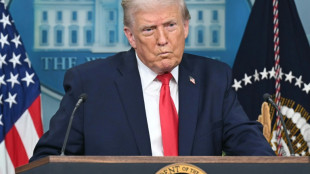
-
 Humiliated Man City have to 'change the dynamic': Guardiola
Humiliated Man City have to 'change the dynamic': Guardiola
-
Golden State's Butler out for season with ACL injury: agent

-
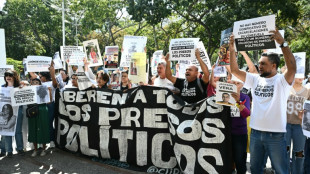 Venezuela woos US oil majors with new investment czar
Venezuela woos US oil majors with new investment czar
-
Wales Six Nations strike threat just 'speculation' for Tandy

-
 Syria government agrees new truce with Kurdish forces
Syria government agrees new truce with Kurdish forces
-
Russian interior minister in Cuba, which faces pressure from Trump
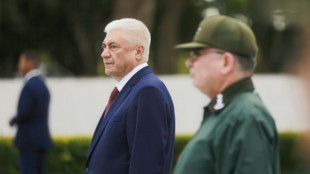
-
 US finalizes rule for deep-sea mining beyond its waters
US finalizes rule for deep-sea mining beyond its waters
-
Iran protest crackdown latest developments
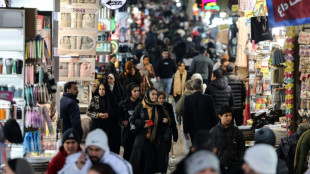
-
 Muted anniversary: Trump marks first year back with familiar grievances
Muted anniversary: Trump marks first year back with familiar grievances
-
Man City stunned by Bodo/Glimt in epic Champions League upset

-
 Cooler temperatures offer respite for Chile firefighters
Cooler temperatures offer respite for Chile firefighters
-
Scientists plan deep-sea expedition to probe 'dark oxygen'

-
 Howe calls on Newcastle to use spirit of Robson to inspire win over PSV
Howe calls on Newcastle to use spirit of Robson to inspire win over PSV
-
Massive US presence makes its mark on Davos
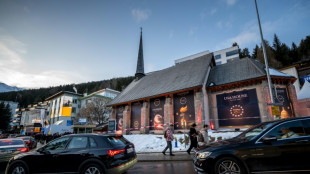
-
 Ter Stegen to join Girona on loan: Barca coach Flick
Ter Stegen to join Girona on loan: Barca coach Flick
-
France PM forces part of budget through parliament without vote
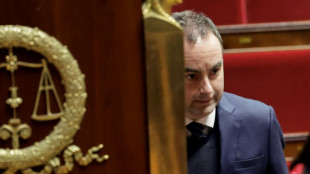
-
 Scotland boss Townsend picks veterans Gray and Cherry for Six Nations
Scotland boss Townsend picks veterans Gray and Cherry for Six Nations
-
Record try-scorer Penaud faces French axe for Six Nations

-
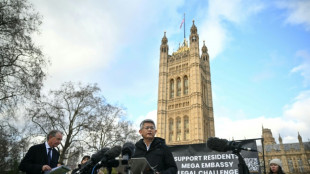 UK approves plans for Chinese mega-embassy in London
UK approves plans for Chinese mega-embassy in London
-
Rosenior keen to build winning ties with 'world-class' Fernandez


'Hostage situation': Egypt's decade-long rights crackdown
Ten years ago, Egypt's then-defence minister Abdel Fattah al-Sisi rallied citizens by promising to move the country out of the "terrorist" shadow of Islamist president Mohamed Morsi.
Today, the former general rules a nation where expressions of dissent have been quashed, the media is muzzled and the justice system is a labyrinth even legal experts say they cannot navigate.
Over the decades, Egypt -- the most populous Arab nation and a key US ally -- "was never a very liberal democracy", said Hossam Bahgat, founder of the Egyptian Initiative for Personal Rights.
But today's level of state repression is unprecedented, say rights activists.
For decades, Egyptian "activists and lawyers have been imprisoned for their opinions", said human rights lawyer Mahienour El-Massry.
Now, she said, "ordinary citizens are accused of terrorism because of a TikTok sketch or a Facebook post complaining about the cost of living".
The United States has accused Egypt, one of its top military aid recipients, of torture, "life-threatening prison conditions", free speech restrictions and the persecution of the LGBTQ community.
This week marks a decade since Sisi deposed Morsi in popular protests -- the last time Egyptians demonstrated en masse, after the overthrow of veteran ruler Hosni Mubarak in the 2011 Arab Spring.
Sisi assumed power a year later and has since tightened his grip on the nation of now 105 million people.
A decade on, said Bahgat, "the entire country lives in fear of arrest, open-ended detention with no due process.
"We went from self-censorship to the entire population living in a hostage situation."
- 'Zero demonstrations' -
On Egyptian streets that once echoed with protest chants, "there are literally zero demonstrations a year", Bahgat said.
"For the first time in Egypt there is not one single opposition newspaper, there is no way for the population to express dissent in an organised manner."
According to rights groups, 562 websites are now blocked, including of independent news outlets, non-profits and rights organisations.
Authorities regularly ban rap and electronic music performers and have prosecuted young female social media influencers for "violating family values".
Bahgat said Egypt has "turned into a carceral state. It is the worst decade in the modern history of the country when it comes to human rights".
Authorities point to reforms, including lifting a long-standing state of emergency, and a revived presidential pardoning committee that has released hundreds of political prisoners.
Long accused of brutal prison conditions, Egypt has opened new "rehabilitation centres" with libraries and workshops for inmates.
Under a new "national dialogue", former prisoners "speak to those within the institution, with much enthusiasm", according to its coordinator Diaa Rashwan.
But rights defenders -- many of whom have had their assets frozen and remain under travel bans -- label such gestures mere manoeuvres.
Measures once allowed under states of emergency have been streamlined into laws which "have been turned into oppression tools", said Bahgat.
"Even at the height of authoritarianism... the judiciary had to create a legal basis for abuse," he said. "That has ceased to exist."
- Caught in the system -
Today, the judiciary has been made compliant through the censures, transfers and promotions of judges that cement the loyalty of those left, activists say.
Egypt now ranks 135th out of 140 countries on the Rule of Law Index by the World Justice Project.
One of the many citizens caught up in the justice system is finance manager Samer al-Desouki, 32, who was arrested on the street over a year ago and remains in pre-trial detention, Bahgat told AFP.
While his family swore he had nothing to do with Islamists or the liberal opposition, his lawyers have been unable to access the file of the state security detainee.
An anti-terrorism court in the city of Damietta acquitted Desouki of "belonging to a terrorist organisation" three times last year.
And yet each time, Bahgat said, he was handed a new case number under the same charges that restarted the clock on his pre-trial detention.
Lawyers now attend their clients' detention hearings via video call in what was once a Covid safety measure.
Massry describes seeing "20 detainees on screen at once... flanked by guards, they can't talk about their conditions in detention."
There is no way to verify how many Egyptians are behind bars, and authorities refuse to release figures.
Rights monitors say that so far this year at least 16 inmates have died in state custody, at least five of them in new rehabilitation centres.
Massry can only report what she has seen during several past stints in detention. In 2016, the women's prison she was jailed in held around 30 political prisoners, she said.
When she was arrested again in 2019, she recounted, "there was an entire wing reserved for political cases, with some 200 people inside".
K.Brown--BTB




